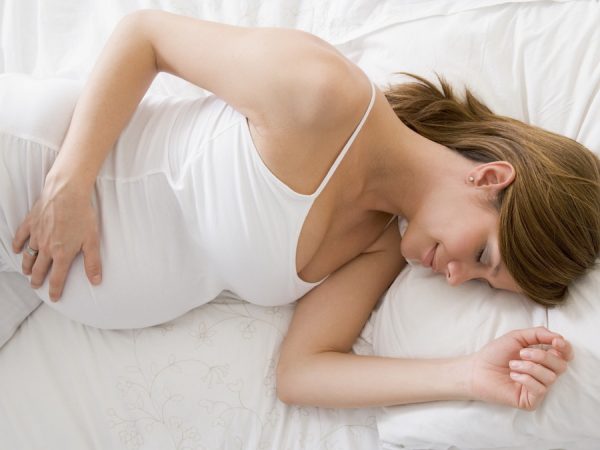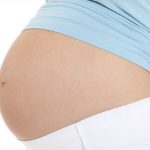Early toxemia in pregnancy
Toxemia of pregnancy or early preeclampsia is a common pathology occurring in the first trimester of pregnancy (before 12 weeks) due to neuroendocrine disorders in pregnant women.

Today there are many theories explaining the causes of toxicosis in early pregnancy. The essence of all these theories is that specific physiological adjustment, regulated by the nervous system and hormones, occurs in a woman’s body. Early toxicosis occurs mainly because of failures in the regulation of the neuroendocrine system. Some hormones, produced by the placenta and the endocrine glands (pituitary, thyroid gland, sex glands etc.), are new to a woman’s body. A pregnant woman can’t adapt to her new stage immediately and develops toxemia. That is why gynecologists call toxemia «disease of adaptation».
Causes of early toxicosis.
The precipitating factors, leading to the early development of toxemia (morning sickness) of pregnancy, include:
- chronic diseases of the digestive system, kidney diseases;
- stress, nervous irritability, depression;
- genetic predisposition;
- infectious diseases, intoxication;
- high blood pressure
Some experts suggest that early toxicosis is a kind of a protection of the embryo against possible harmful habits of the mother (poor nutrition, smoking etc.). Most people think that nausea, vomiting and general malaise during pregnancy is quite normal for pregnant women. However, this condition may be dangerous to the health of the woman and her child.
There is nothing dangerous in mild gestational toxicosis, which manifests itself through slight irritability, drowsiness, etc. Toxemia of pregnancy can also have more severe symptoms that are accompanied by strong and frequent vomiting. Such a condition can lead to the loss of a large amount of water and nutrients in a pregnant woman and her body won’t be able to promote the normal development of the fetus.
Symptoms of early toxemia of pregnancy
First symptoms of early toxicosis of pregnancy often appear after a woman finds out about her pregnancy, on the 5th-6th week. The most typical symptoms are nausea, vomiting, and excessive salivation. According to medical data, about 60% of pregnant women have similar symptoms in early pregnancy.
Depending on the severity of vomiting symptom, we can mark out 3 degrees of toxicosis severity:
- mild early toxicosis of pregnancy- vomiting up to 5 times per day,
- moderate early toxicosis — vomiting up to 10 times a day,
- severe early toxicosis of pregnancy — uncontrollable vomiting up to 25 times a day.
While any degree of early toxicosis, weight loss in pregnant women is observed. While moderateand severe toxicosis, blood pressure lowers, heart rate increases, drowsiness occurs — a woman feels weakness and irritability. Most pregnant women with toxemia complain of poor appetite, even the smell of food causes a gag reflex. Profuse salivation leads to dehydration, the skin becomes dry and flabby.
At the first signs of toxicosis, you should urgently consult your gynecologist. A severe form of toxemia is a threat to the life of a pregnant woman and fetus.
Diagnostics of early toxicosis.
The diagnosis of gestational toxicosis is not difficult. It is done on the basis of complaints. The doctor will be able to assess the severity of toxicosis and prescribe adequate treatment after:
— clinical and biochemical analysis of blood;
— urinalysis.
When mild early toxicosis, all analyses must be within normal limits.
When moderate toxicosis, slightly increased levels of hemoglobin, white blood cells and hematocrit is observed. Hyperkalemia and hyponatremia can also be observed because of the disturbed water and electrolyte balance in pregnant women. As for the urinalysis, there, acetone level and relative density of urine increase.
While severe early pregnancy toxicosis, laboratory tests of blood show significant deviations from the norm: in addition to the increase in hemoglobin, hematocrit, leukocytes, urea, and creatinine, — the amount of total protein, glucose, and erythrocyte sedimentation rate considerably reduce. In the urine protein, acetone and ketone bodies are detected.
Treatment of early gestational toxicosis.
Pregnant women with mild forms of early toxicosis are treated as outpatients. While moderate and severe forms hospitalization is highly recommended. The treatment varies depending on severity.
Pregnant women with mild toxicosis need, first of all, psychological and physical rest. Sedatives vitamins and hepatoprotectors are often prescribed and antiemetic therapy is conducted. In most cases, these medications are enough, as the state of the woman’s health improves greatly.
While moderate toxicosis, infusion therapy with glucose solution in combination with antiemetic drugs, hepatoprotectors, vitamins, and sedatives is conducted in the hospital.
The treatment of severe toxicosis is carried out in the intensive care unit with the strict control of hemodynamic parameters and laboratory analyses. Antiemetic drugs, hepatoprotectors and vitamins are injected intravenously. If despite treatment, the health state of a pregnant woman is not improving, termination of pregnancy, due to the growing multi-organ failure, is done.
How to get rid of toxemia?
Eating habits and changing way of life of a pregnant woman with toxemia is a real new subject for her to study. Taking account of all the recommendations, you can successfully get rid of gestational toxicosis or prevent its occurrence without taking any drugs.
Nutrition and diet while early toxicosis.
It’s highly recommended to a pregnant woman to stick to a certain diet — to eat little and often — up to 5−6 times a day. Food should be warm, not cold and not too hot. It is recommended to exclude spicy, sour, fried food and carbonated drinks from the diet, as they may cause nausea and vomiting. This is particularly important to pregnant women with chronic diseases of the digestive system.
If nausea and vomiting sometimes occur — a dry diet is recommended — a hard-boiled egg, baked potatoes with butter, bread and butter and so on. Try to consume more dairy products, vegetables, fruits, fish and boiled meat. To relieve nausea in the morning you can suck a rye toast before getting up.
Daily walks in the fresh air for at least an hour are highly recommended. Night sleep should be at least 8 hours. If in the daytime you feel sleepy — lie down and relax. It is strongly recommended to limit the psychological and physical stress.
Physiotherapy in early toxicosis treatment.
Regardless of the severity of toxicosis, physiotherapy is useful both in the active stage and during the rehabilitation period. This includes endonasal electrophoresis with B vitamins and galvanization of the brain.
Non-traditional means of treatment of early toxicosis. Acupuncture and Chinese acupressure are among nonconventional methods of toxemia treatment. These methods are especially good for pregnant women, whose toxicosis is caused by psychological reasons.
Folk remedies for early toxicosis treatment.
Folk remedies are very effective in toxemia treatment, especially in milder forms. Chamomile, peppermint and lemon balm infusions are most effective. Pour 2 tablespoons of chamomile with about half a liter of boiling water and leave the infusion overnight in a thermos. Filter it in the morning and take 3 times a day 30 minutes before meals. The same is done with lemon balm and mint. You can also add a spoonful of honey and lemon to the infusion. In the summer, when it’s possible to buy fresh mint and lemon balm, you can chew a few leaves to relieve nausea.
About all folk remedies consult your doctor first! Prolonged and excessive use of herbs may lower blood pressure.
Possible early toxicosis complications:
- multiple organ failures, which can lead to a fatal outcome if no termination of pregnancy;
- late treatment of early toxicity can cause the development of late gestosis and placental abruption at the end of pregnancy.
Don’t panic! Modern medicine won’t allow this if you consult your doctor in time.
Prevention of early toxicosis.
Prevention of toxicosis should be performed before pregnancy, it includes:
- timely treatment of chronic diseases causing toxicosis;
- the refusal of abortion;
- healthy lifestyle;
- psychophysical preparation for the upcoming pregnancy.
Early toxicosis in questions and answers. FAQ
- I am constantly nauseous, but no vomiting. What medicine to take?
If there is no vomiting, nothing should be taken without doctor’s prescription. Follow general recommendations. Eat several times a day in small portions, rest more.
- Does the severity of toxicosis depend on the sex of the future baby?
No.
- In the 6th week of pregnancy, I had a strong toxicosis. Now it’s 10th week, and everything is OK. Is this normal? I heard that toxicosis, if starts, doesn’t end before the 12th week.
Everything is OK! It means your body has already adapted to pregnancy.
- I have constant vomiting — 6 times a day. Gynecologist suggested going to the hospital, without estimating analyses. Can I stay home to receive medical treatment?
No, with such frequent vomiting it’s necessary to have supervision and treatment in hospital.
- I’m now 25 weeks pregnant, but I am still sick. I was in the hospital twice because of toxicosis, that didn’t help. What to do?
You need to consult a neurologist and gastroenterologist. If no organic pathology, it is likely that the symptoms are due to improper nutrition.
- I am in 8th week, I got sick with the flu. Constant vomiting already lost 5 kg. What to take?
No self-medicating! Urgently contact your gynecologist, your state needs inpatient treatment.
- Gynecologist advised me to eat boiled meat, but I’m constantly vomiting even smelling it. How to eat meat, so that it did not cause nausea?
Such methods do not work. Eat only those foods that do not cause nausea.
- Brushing teeth each time causes a gag reflex. What to do?
Try to change toothpaste. If that doesn’t work, then only rinse the teeth until toxicosis ends.




